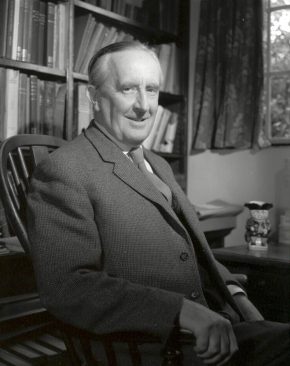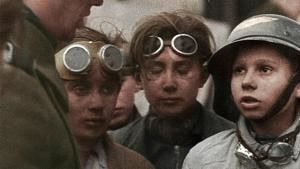| Post New Reply |
| Author | Content |
|
MarkUK
|
|
|
|
Date Posted:2024-01-01 08:58:20 1 January 1944 - Sir Edwin Lutyens died. English architect, designer of many country houses, public buildings and war memorials, most notably the Cenotaph in Whitehall (1920). He was the principal architect in the construction of New Delhi in the 1920s and 30s. Knighted in 1918.
|
|
shula
|
#1 |
|
|
Re:Reply Topic Date Posted:2024-01-02 12:27:43 Sir Edwin's accomplishments are beyond impressive. I can see why he is considered Great Britain's greatest architect.
|
|
MarkUK
|
#2 |
|
|
Re:Reply Topic Date Posted:2024-01-02 03:28:54 2 January 1924 - Rev. Sabine Baring-Gould died. 100 years ago today. English clergyman and prolific author. Parish priest from 1871, from 1881 in his home County of Devon. Baring-Gould wrote dozens of novels and short stories many with an element of folklore and a touch of the supernatural about them, often set in rural Devon. He also wrote extensively on history, travel, mythology and religion. His most famous work is the words to the hymn Onward Christian Soldiers (1865). Among his best known novels, although largely neglected today, are Mehalah (1880) and The Gaverocks (1887), The Book of Were-Wolves (1865) is a study of the mythology of the werewolf. He may be the kind of novelist you would like Shula, as you've mentioned before Project Gutenberg is a great place to find out of print works, there are quite a few of his there.
|
|
tommytalldog
|
#3 |
|
|
Re:Reply Topic Date Posted:2024-01-02 03:41:40 A personal story from ions ago. I was in the Cub Scouts (7 years old) & our pack was in church for some kind of ceremony (forgotten in time) & the choir sang Onward Christian Soldiers as we were marching down the aisle to our assigned seats. In the lyrics there was something about marching on or off to war. Here we were a bunch of 7-year-olds, in uniforms & I thought we were being shipped off to fight in some far-off war. |
|
MarkUK
|
#4 |
|
|
Re:Reply Topic Date Posted:2024-01-02 06:40:23 It was the only hymn I would sing at school with its stirring refrain. |
|
majorshrapnel
|
#5 |
|
|
Re:Reply Topic Date Posted:2024-01-02 08:15:48 Mine was the unofficial national anthem of England.... Jerusalem. |
|
majorshrapnel
|
#6 |
|
|
Re:Reply Topic Date Posted:2024-01-02 08:21:37 And here she be |
|
tommytalldog
|
#7 |
|
|
Re:Reply Topic Date Posted:2024-01-03 01:44:29 It was the only hymn I would sing at school with its stirring refrain. Refrain? Please advise. |
|
shula
|
#8 |
|
|
Re:Reply Topic Date Posted:2024-01-03 03:23:51 Refrain:
Onward, Christian soldiers, marching as to war, With the cross of Jesus going on before. The song has a medieval crusader theme. The Book of Were-Wolves is going to be a daunting read, but I am determined to take it on for the history of the legend. |
|
MarkUK
|
#9 |
|
|
Re:Reply Topic Date Posted:2024-01-03 08:41:06 I've never read any Baring-Gould, his books are hard to come by unless you're happy to buy a modern reprint via the internet. In fact I've only ever seen a "genuine" old copy in Hay-on-Wye once - Red Spider which I didn't buy. |
|
MarkUK
|
#10 |
|
|
Re:Reply Topic Date Posted:2024-01-03 08:54:29 3 January 1892 - J(ohn) R(onald) R(euel) Tolkien born. Famous for his two works of fantasy fiction The Hobbit (1937) and the Lord of the Rings trilogy (1954-55). He also wrote many poems and academic works mostly on a fantasy theme. Born in the Orange Free State his family returned to England when he was just three. He has connections with my County of Staffordshire. He trained at the Army Training Camp on Cannock Chase in World War I and lived with his wife in lodgings in the village of Great Haywood. It is thought that some of the locations in his novels are based on the area around Cannock Chase.
|
|
shula
|
#11 |
|
|
Re:Reply Topic Date Posted:2024-01-04 03:05:27 I've spent no small amount of time in Middle Earth.
|
|
pbandrew3rd
|
#12 |
|
|
Re:Reply Topic Date Posted:2024-01-04 05:26:31 A personal story from ions ago. I was in the Cub Scouts (7 years old) & our pack was in church for some kind of ceremony (forgotten in time) & the choir sang Onward Christian Soldiers as we were marching down the aisle to our assigned seats. In the lyrics there was something about marching on or off to war. Here we were a bunch of 7-year-olds, in uniforms & I thought we were being shipped off to fight in some far-off war. Same song the Hitler youth use to sing and they were sent off to war. Some as young a 10 defending Berlin.
|
|
majorshrapnel
|
#13 |
|
|
Re:Reply Topic Date Posted:2024-01-04 08:29:31 And speaking of the Hitler youth, this is a very powerful scene from the film Cabaret. They are in a cafe garden and the German Count (Helmut Green) is telling the Brit (Michael York) how his kind can control the Nazis when a Hitler youth boy stands up and begins to sing a nazi patriotic song and in the growing mood of the time he is slowly followed by the rest of the people, swept up by the nazi dream, the ideal, a portent of things to come |
|
MarkUK
|
#14 |
|
|
Re:Reply Topic Date Posted:2024-01-04 10:08:27 4 January 1785 - Jakob Grimm born. The elder of the two brothers Grimm. The more serious of the two, his younger brother Wilhelm liked society and entertaining unlike Jakob. Together they collected and published a series of folk tales under the title Children's and Household Tales beginning in 1812 by the seventh volume in 1857 they had published a total of over 200 tales. Jakob also became involved in German politics serving as one of the representatives of the Landgravate of Hesse-Kassel to the Peace Conference in 1814. An early advocate of German unification he served in the short-lived Frankfurt Parliament during the revolutionary year 1848.
|
|
majorshrapnel
|
#15 |
|
|
Re:Reply Topic Date Posted:2024-01-04 10:42:45 Frankfurt was a free city then, until it was eventually taken over by Prussia |
|
MarkUK
|
#16 |
|
|
Re:Reply Topic Date Posted:2024-01-05 09:00:07 5 January 1902 - Stella Gibbons born. English writer whose fame rests almost entirely on a single work, her debut novel Cold Comfort Farm (1932). Gibbons regarded herself more as a poet than a novelist but none of her works reached the fame of her first novel. Set on an isolated farm it is a parody of the rural fiction popular at the time and gave rise to the phrase "something nasty in the woodshed" the words uttered by the domineering but reclusive Aunt Ada Doom locked away in her bedroom for decades. I saw something nasty in the woodshed,’ said Aunt Ada Doom, fretfully moving her great head from side to side. ‘’Twas a burnin’ noonday … sixty-nine years ago. And me no bigger than a titty-wren. And I saw something na—’ A great novel made into a superb TV drama in 1995 available on DVD. |
|
shula
|
#17 |
|
|
Re:Reply Topic Date Posted:2024-01-06 02:46:20 I have a two-volume set of Grimm's Fairy Tales. They are not to be read at bedtime, but they were the basis of my addiction to the TV show Grimm. I just watched a 10-minute clip of the first episode of Cold Comfort Farm. They had me at Flora's wardrobe. The Hitler youth scene in Cabaret was absolutely chilling. |
|
MarkUK
|
#18 |
|
|
Re:Reply Topic Date Posted:2024-01-06 08:51:50 6 January 1840 - Frances Burney died. Known as Fanny Burney, one of the first successful female novelists. Her debut novel was her most popular, Evelina published in 1778 about a naive young woman's entrance into London society mirrored her own experiences. She followed it with Cecilia (1782) and Camilla (1796). Her connections with high society enabled her to obtain the post of Second Keeper of the Robes to Queen Charlotte, wife of King George III, a post she held for six years. In 1793 she married an exiled French army officer Alexandre D'Arblay and after the worst excesses of the French Revolution were over he and Fanny settled in Paris. She returned with her son to England in 1812 only rejoining her husband in France three years later. After his death in 1818 she finally settled in England where she died aged 87.
|
|
MarkUK
|
#19 |
|
|
Re:Reply Topic Date Posted:2024-01-06 09:03:22 A great scene from Cold Comfort Farm. |
|
tommytalldog
|
#20 |
|
|
Re:Reply Topic Date Posted:2024-01-06 01:54:50 1/6/24
Third anniversary of the Capital riot. |










